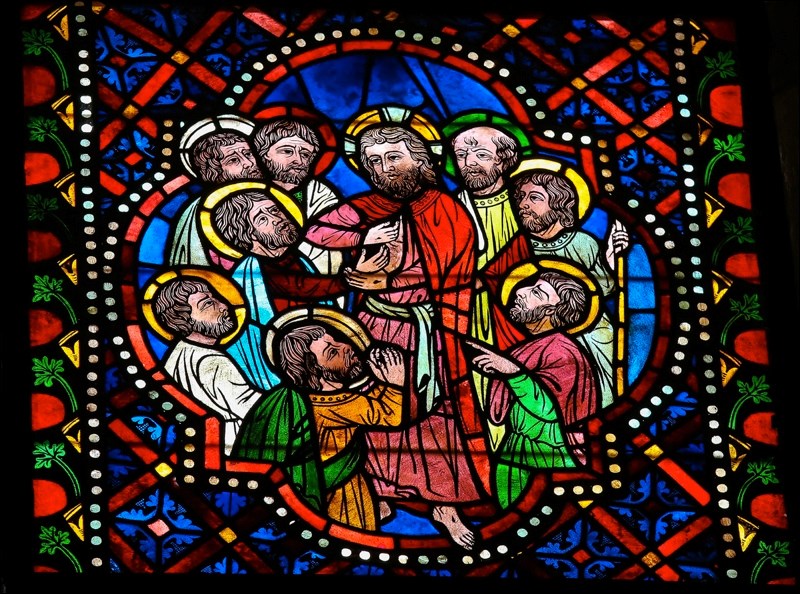Jesus came with His disciples to northern Israel, to the area called Caesarea Philippi.
Jesus always seemed to have purpose in what He did, and this was no different. It is significant that He came to this location, which was a centre of the worship of the pagan god Pan.
Pan originated in Greek mythology. He was depicted as half goat and half man. Ancient Greeks believed he had a wild and unpredictable nature and he had the power to fill people with sudden terror. Our word PAN-IC comes from his name.
The Greeks believed he lived in caves and on mountain slopes in deserted places. He was supposed to have invented the panpipes made from a bed of reeds and could play beautiful music.
The worship of Pan spread beyond Greece, even to Israel, so that Caesarea Philippi became a centre of worship of this pagan god.
I went with a tour group to the Holy Land that included a visit to Caesarea Philippi. We came to an area that had a vertical rock face that towered above us and which had several caves in it.
Below were several streams of water with lush vegetation covering the area. These streams apparently are one of the sources of the Jordon River. All in all it was a place of scenic beauty and seclusion. One could imagine this would be an ideal location for the worship of Pan.
It is very possible Jesus brought His followers to this very place. At any rate Jesus invaded the centre of pagan worship, Caesarea Philippi with light and glory.
Decision
It was here that Jesus confronted His disciples with a definite decision. They had been with Him long enough to see He had power to work miracles and to hear His teaching.
Now what did they think of Him? First, He asked, “Who do men say that I, the Son of Man, am?”
The answer was, “Some say John the Baptist, some Elijah, and others Jeremiah or one of the prophets.”
Then Jesus asked, “But who do you say I am?”
Simon Peter (never lost for words) replied with a wonderful confession of faith: “You are the Christ, the Son of the living God” (Matthew chapter 16 verse 16). This is one of the most sublime statements concerning Jesus, and it was clearly stating the divinity of Jesus.
Did Jesus censure Peter for saying this? No, on the contrary, Jesus acknowledged that it was a true statement, replying, “Blessed are you, Simon Bar-Jonah (son of Jonah), for flesh and blood has not revealed this to you, but My Father who is in heaven” (Matthew chapter 16 verse 17).
When faced with Jesus, every person has to make a decision about who He is. Is He a good man only with high ideals or just one of the great prophets?
C.S. Lewis, former Cambridge University professor and respected academic, gave his opinion of Jesus in the book Mere Christianity.
With regard to those who say, “I’m ready to accept Jesus as a great moral teacher but don’t accept His claim to be God,” C.S. Lewis replies to that view:
“A man who was merely a man and said the sort of things Jesus said would not be a great moral teacher. He would be either a lunatic – or else he would be the Devil of Hell. Either this man was, and is, the Son of God or else a madman or something worse.
“But let us not come with any patronizing nonsense about His being a great human teacher. He has not left that open to us. He did not intend to.”
We can know what God the Father thinks about Jesus. It is recorded for us in the New Testament book of Philippians.
God the Father has highly exalted His Son and has given Him the name which is above every name, that at the name of Jesus every knee should bow and that every tongue should confess that Jesus Christ is Lord, to the glory of God the Father (from Philippians chapter 2, verses 9-11).
If this is what God thinks of His Son, I would be very reluctant to use the name of Christ in profanity.
We are encouraged in Romans chapter 10, verse 9 to “confess with the mouth the Lord Jesus and believe in your heart that God has raised Him from the dead.”
Lorne Moorhead is a retired pastor living in Flin Flon.




